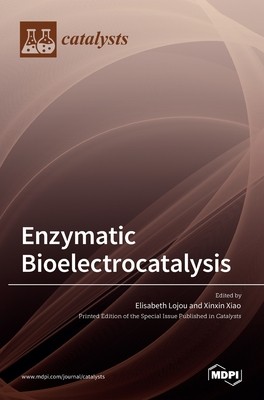
- We will send in 10–14 business days.
- Publisher: MDPI AG
- ISBN-10: 3036534601
- ISBN-13: 9783036534602
- Format: 17 x 24.4 x 1.6 cm, hardcover
- Language: English
- SAVE -10% with code: EXTRA
Enzymatic Bioelectrocatalysis (e-book) (used book) | bookbook.eu
Reviews
Description
Featuring a mild process and high selectivity, enzyme bioelectrocatalysis employing oxidoreductases immobilized on conductive surfaces is playing an increasingly vital role across a wide scope of applications. Enzyme bioelectrocatalysis is key for devices such as biosensors and biofuel cells, which are attracting considerable attention towards sustainable sensing and energy production. A wide range of sophisticated reactions, such as chiral compound synthesis and CO2 and N2 fixation, can be accomplished with enzyme bioelectrocatalysis. Last but not least, redox enzymes are sources of inspiration for new non-noble metal electrocatalysts.
The "Enzymatic Bioelectrocatalysis" Special Issue comprises six reviews contributed by research groups from different countries, covering fundamentals and applications, as well as the recent research progress in this field.
EXTRA 10 % discount with code: EXTRA
The promotion ends in 11d.01:06:56
The discount code is valid when purchasing from 10 €. Discounts do not stack.
- Publisher: MDPI AG
- ISBN-10: 3036534601
- ISBN-13: 9783036534602
- Format: 17 x 24.4 x 1.6 cm, hardcover
- Language: English English
Featuring a mild process and high selectivity, enzyme bioelectrocatalysis employing oxidoreductases immobilized on conductive surfaces is playing an increasingly vital role across a wide scope of applications. Enzyme bioelectrocatalysis is key for devices such as biosensors and biofuel cells, which are attracting considerable attention towards sustainable sensing and energy production. A wide range of sophisticated reactions, such as chiral compound synthesis and CO2 and N2 fixation, can be accomplished with enzyme bioelectrocatalysis. Last but not least, redox enzymes are sources of inspiration for new non-noble metal electrocatalysts.
The "Enzymatic Bioelectrocatalysis" Special Issue comprises six reviews contributed by research groups from different countries, covering fundamentals and applications, as well as the recent research progress in this field.


Reviews